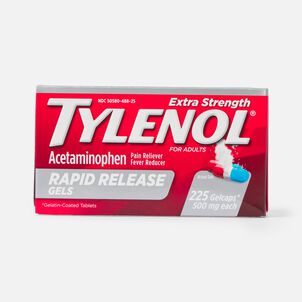Getting to know enrollment periods, cutoff dates and qualifying life events

When you decide to contribute to a FSA, whatever you select as your contribution amount stays the same throughout the year. That means if you change your mind, there really is no going back. In other words, it's crucial that you budget carefully so that you'll be able to use up the amount you put into your FSA or else you'll risk forfeiting the cash.
But there are exceptions to the rule. If you experience what's known as a qualifying life event, your employer may let you make changes to your FSA. This includes changes in marital status, employment and the birth of a child.
What if these qualifying life events happen after you make your FSA elections? The short answer is that you should be able to make changes during what's known as a special enrollment period.
What is a special enrollment period?
A special enrollment period is a set amount of time outside of the open enrollment period (which is typically around November 1 to December 15) where you can make changes to your health plan, including your FSA contributions.
You can only take advantage of a special enrollment period if you have a qualifying event or experience a complex issue and if your plan allows for the change. If eligible, you'll typically have 30 to 60 days from the date of the special circumstance or qualifying life event to make changes to your FSA. It's best to check with your FSA provider for the specifics.
How do I know what my cutoff date is?
Let's say you've been contributing about $150 a month towards your FSA for you and your spouse's medical expenses. Unfortunately, you both decide to break things off and begin the paperwork in November of this year and your divorce won't be finalized until January of next year. This counts as a qualifying life event, so you qualify for the special enrollment 60 days from the date you finalized the divorce.
Another common qualifying event is if you become a parent or gain a new dependent. You adopted a child and the adoption date as defined by the course is February 12, 2024. You may be able to increase your FSA contributions and \make changes 30-60 days from that date. Or, your child turns 27 halfway through next year and you want to decrease your FSA contributions, you have 30-60 days from your child's 27th birthday.
There may be some exceptions to the cutoff date, such as when it comes to the dependent care FSA (DCFSA). For example, the DCFSA is only for certain expenses for dependents 12 and under. If your child turns 13 halfway through 2024, you may be able to make changes 30 days from their 13th birthday.
Significant changes in dependent care could also qualify for the special enrollment period. If you switch daycare providers, there was a significant price change or both parents aren't employed (or a student) anymore, you may be able to increase, decrease or stop your DCFSA contributions (consistent with the qualifying event).
As mentioned earlier, your FSA provider may not allow you to make changes outside of the enrollment period or their cutoff dates differ than what we've indicated. Your best bet is to contact your provider and explain your specific situation to find out what your options are.
What are these "complex issues" you speak of?
Healthcare.gov mentions there are a few special cases in which you may be able to change your FSA plan. If you went through a natural disaster or serious medical condition that prevented you from enrolling - like an earthquake or unexpected major surgery - you may be able to petition to make changes.
When my husband and I signed up for a DCFSA when he switched jobs, the system had a major glitch and had it so that $1,650 would be deducted from each paycheck instead of $300. When we saw the paperwork, we were able to change it even though we were well past the open enrollment period.
Of course, all of the above are hypothetical scenarios and may not apply to you. It's always a good idea to call your FSA administrator before or as soon as any qualifying event or special circumstances so that you can make any necessary changes within the cutoff date.
 |
| 















